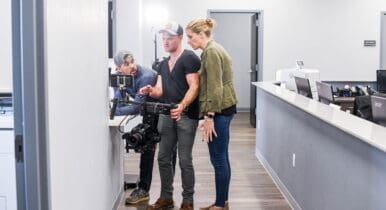Risk vs. Reward: Timing Around Major Business Decisions Can Come Down To a Gut Feeling

In what’s increasingly a grow-or-die environment for firms, consultants are having to make more and more risk-versus-reward calculations.
Should we buy a firm that we’ve partnered with in the past? Can we hire the right people to launch a competing product internally? Should we take on another partner to help us compete against a national firm gunning for our local business?
A spreadsheet can project whether an investment will pay off. Numbers, after all, don’t lie. But not every firm owner shares that faith in cold, hard data. Beth Clayton Pierce, a serial entrepreneur and COO at Boulder Strategies, believes that sometimes, consultants just have to follow their gut.
“If there’s that little voice in your tummy saying, ‘Ah, this is not the right move for me,’ even if the math says it is, if you don’t believe it, if you don’t actually believe in your heart and your head that what you’re doing is the right thing for you and your family, it’s not going to work,” she said at C&E’s Reed Awards & Conference in Las Vegas. “It can be the right decision on paper, but it’s not going to work.”
Mark Jablonowski, president of DSPolitical, agreed, but with a caveat.
“The whole idea of that gut feeling, that’s what makes so many entrepreneurs so special,” he said, “because you have a feeling that other people just don’t have. You’re recognizing a product that is missing in the marketplace, you’re recognizing a service that is not out there and you say, ‘I know I can do this.’ A spreadsheet is not going to tell you that.”
He continued: “You do have to follow that feeling. That’s essentially how any successful business person gets started — but once you have decided to do that, when you can bring data in to help make it even more effective, that’s where you really can start seeing multiples of success.”
Getting cold feet can also come with its own downside in the form of opportunity cost. In fact, Brent Buchanan, founder and president of Cygnal, thinks that many in the industry think about risk the wrong way.
“We think about risk in terms of ‘I’m going to spend this, or grow this, and I would lose it if it doesn’t work out.’ Risk also is opportunity cost: So what is lost by doing nothing differently?” he said.
“A lot of the big decisions that are the seminal, pivotal moments of your business are almost as much keeping with the status quo that came with that opportunity cost and not just the, ‘I’m going to do something new,’ and the risk that [comes with that].”
But risk tolerance is not just for the firm owner or partners. Clayton Pierce believes that a shop’s employees also need to have some appetite for it. She recommends “finding and investing in a team that is as hungry as you are.”
“Because you can’t teach hungry,” she added. “You can’t teach how to get out there and get after it.”

